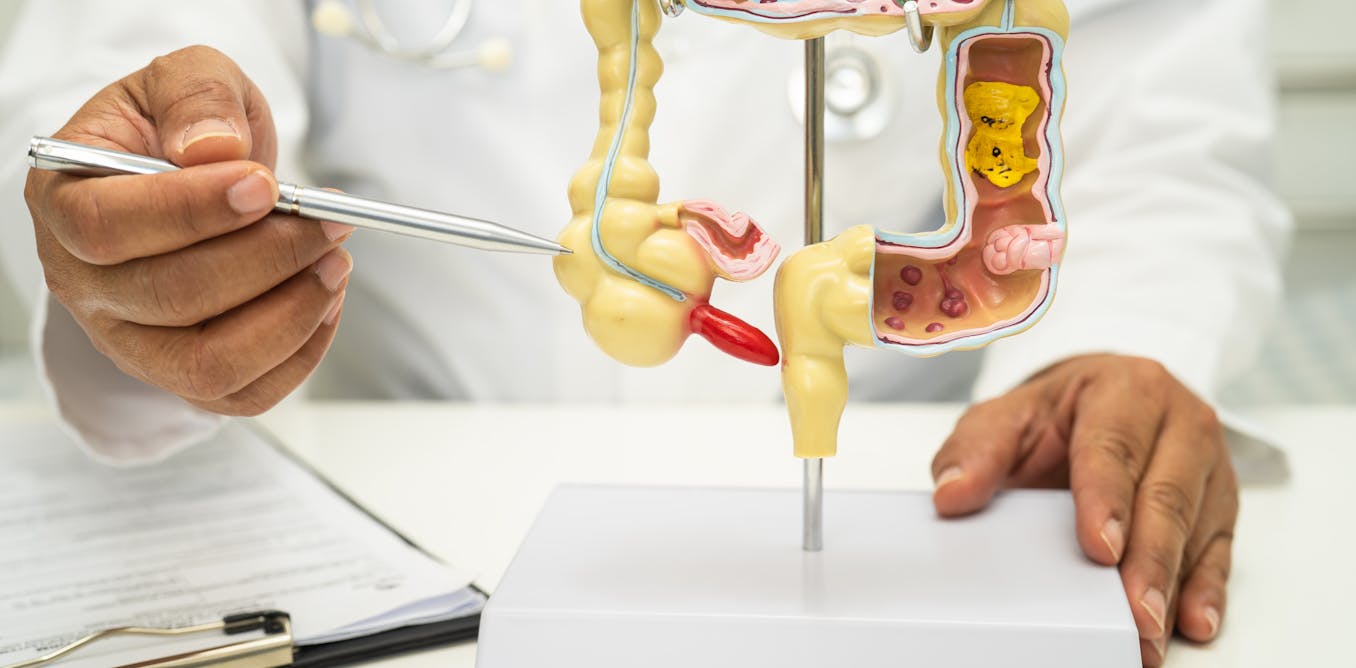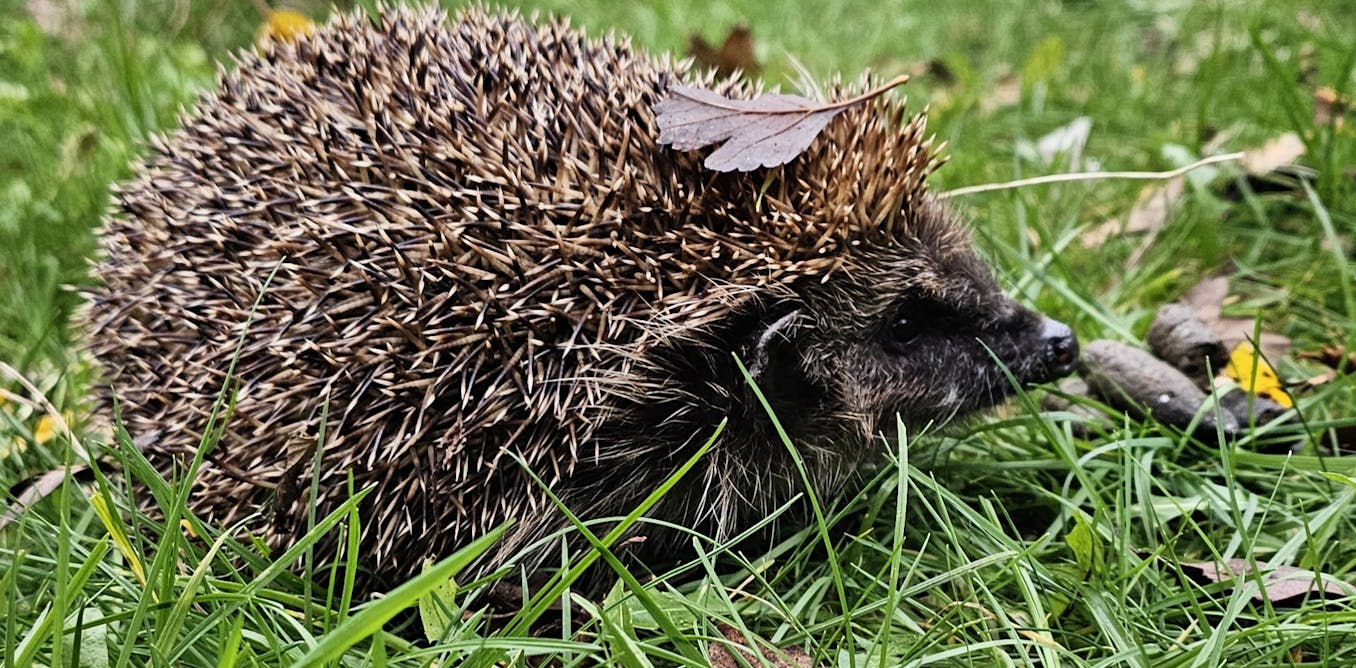What does becoming a father do to men? Do men who become dads change? Scientists are studying what goes on psychologically and physically in fathers before and after having children.
This documentary goes on a journey of discovery, following three men — in Germany, France and Sweden — during their adventure of becoming and being a dad.
Anna Machin, an evolutionary anthropologist at Oxford University, researches the relationship between fathers and their children. The results of her studies show that toward the end of pregnancy and at birth, fathers’ testosterone drops. This helps them respond more lovingly to their children. Leiden University’s Marian Bakermans-Kranenburg’s research results suggest that fathers who communicate daily with their baby during pregnancy also have a stronger bond with the child later on.
What happens to men at birth? That’s what gynecologist Kai Bühling looked at in a study. Around 90 percent of fathers experience the birth as positive – but there are also men who worry about negative changes, especially when it comes to sexuality. The neurobiologist Ruth Feldman from Tel Aviv looked at the brain regions of mothers and fathers in large-scale studies. Her findings: not only women’s brains but also men’s change after birth — provided they are committed fathers.
Exciting scientific findings interwoven with the personal stories make for a fascinating film about the phenomenon of becoming a father and the importance of being a dad.
#documentary #dwdocumentary
______
DW Documentary (English): https://www.youtube.com/dwdocumentary
DW Documental (Spanish): https://www.youtube.com/dwdocumental
DW Documentary وثائقية دي دبليو (Arabic): https://www.youtube.com/dwdocarabia
DW Doku (German): https://www.youtube.com/dwdoku
DW Documentary हिन्दी (Hindi): https://www.youtube.com/dwdochindi
Playtime or pie charts? Porridge or Power Point? More and more dads choose to swap the office for the nursery and spend time with their children. But what happens to men during pregnancy, birth and the first years of their baby’s life? In this film we discover what science knows about dads…
We know that male hormones drop off during childbirth. The Brain changes after you become a father. What’s wonderful about the father child relationship is that dads are a different sort of parent. We spend time with young dads and experience how being a father changes them.
It’s overwhelming to know that I’m going to be a father in a few minutes. I can’t wait to see what it’s like to look after two children at the same time. I’m getting to starting to see when she learns to crawl, when she learns to walk, when she says her first words.
I mean, that’s awesome. Berlin, Germany. Alexander Köthe and his wife Ania live in the Mitte district. Soon there will be three of them they are expecting their first child in six weeks. I’m excited. It’s thrilling that we don’t know what’ll happen or how everything’s going to develop.
So, there’s a lot of anticipation and, of course, some trepidation. It’s a mixture of feelings. The pram has arrived. Everything revolves around the birth and what is going to happen. I’m fine when I fall asleep. But of course I do worry about things. Maybe I’ll be at university giving a lecture
And then I have to somehow get through Berlin traffic to get to the clinic. How will Ania get there? Will someone be there to help her get to hospital? So these are the things that I’m thinking about. I wouldn’t say I’m scared. The most important thing is for the baby to turn
Because he’s still in breech position, with his legs down. If he turns, then I’d be super happy. A natural birth that’s what I’m hoping for. But the main thing is that he’s healthy. But what about the man? Who takes care of his well-being and what happens to him during pregnancy? Buckinghamshire in England.
Doctor Anna Machin lives with her family and dogs just outside Oxford. The evolutionary anthropologist has been researching fatherhood for years. At Oxford University, she conducted a large study and wrote a book about dads. The trigger was the dramatic birth of her first daughter. My husband witnessed what was basically a car crash happening
In front of him when we were giving birth. He thought he was going to lose both of us and we both came quite close to death. Afterwards, I was offered lots of counselling to deal with my trauma from this birth and actually I didn’t really need it,
Because I was unconscious, so I hadn’t seen anything. He had witnessed everything and they offered him nothing. So when I went back to work, I thought, I want to find out who a human father is. And I want to talk about the positive story of human fatherhood. As an evolutionary anthropologist,
I understand how rare human fatherhood is. We are the only ape that has it, and we’re only one of 5% of mammals. I really genuinely do believe fatherhood begins in pregnancy. I think we have this idea that fathers are very and they are physically distance, obviously, from the process of having a baby.
They’re not having that that immense physical closeness that a mother is having. But we know that fathers do, in fact, start to bond with their baby before the baby is born. Professor Kai Bühling, a gynaecologist from Hamburg, also thinks that fatherhood begins during pregnancy. The fact that something is growing inside your partner
That belongs to both of you, is really peculiar. And that you can do an ultrasound and make it visible, perhaps is even more difficult for men, because now they can see that there really is something there. Women go through major hormonal changes during pregnancy. Surprisingly, men do too. Particularly interesting is prolactin,
A hormone that’s responsible for lactation. It sounds a bit funny to say that this hormone increases in men but it does. Prolactin down-regulates the mechanism that controls male hormones. And I suspect that this is also the reason why testosterone levels drop in men during pregnancy and especially after birth.
This enables men to concentrate on their family. Near Fontainebleau, south of Paris in France. It’s the beginning of April. Nuno Domingues and his partner Margaux Audibert have just moved here. They are expecting their second baby in two months. I’m not nervous.
I’m looking forward to seeing what it’s like to look after two children at the same time. Their daughter Alma is taking a nap. Time to organise the clothes for their new baby. Only Nuno knows whether it’ll be a boy or a girl. I don’t want to know. I’ll find out at birth.
Her main concern is that it’s healthy. But I can’t wait nine months without knowing its sex. It’s too long, it’s impossible. Nuno thinks he heard Alma cry. It’s time to wake up the one-and-a-half-year-old anyway. Otherwise, she won’t fall asleep at night. It’s a weekend.
The only chance for Nuno to spend time with his family. During the week, he works long hours and tries to juggle work and family life. It’s changed my life. I have less time for myself, less leisure, because Alma takes up a lot of our time.
But we’re lucky because we find her easy to deal with. She’s quite pleasant to live with. Nevertheless, it’s quite tiring. The challenge is to try and have time to look after my child because I work from Monday to Friday like everyone else. The weekend is not enough.
I would love to spend time from Monday to Sunday with my child. Margaux’s second pregnancy is going smoothly. But still, it would be too much without her husband. I wouldn’t be able to do it without him. I’m really glad that I have him. It gives me a break now and then.
Bedtime: The weekend was far too short. Leiden, The Netherlands. Marian Bakermans is a professor of family studies at Leiden University. Her focus: Fathers. In research on parenting, it’s too often that we say that we do a study on parents, whereas actually it is a study on mothering and not on the father’s role.
So that’s why I think it’s good to bring some balance in the field and to pay more attention to the fathers, especially in the transition to fatherhood. Marian Bakermans studies the first 1,000 days of dads. For example, she conducts ultrasound video feedback sessions between week 21 and 30 of the pregnancy.
She asks fathers to interact with their unborn babies for example by reading them a book. Nearly 100 fathers took part in the study. We give the father the opportunity to interact with the infant. It’s never been done before. And doing so, we provide a father with the opportunity
To take the perspective of the fetus and of the newborn, that this is a human being with a mind of its own, who needs the father’s attention and protection. We know that fathers like to be more involved. Fathers who are more involved during pregnancy are also more involved
After the birth of the baby. After the session, each father gets a video showing how the baby reacted. the baby recognizes the voices of its mother and of its father. And you can see that from their heartbeat increase, when she or he hears the father or mother talk to them.
And they also touch the wall of the uterus longer when there’s touch from the outside. And that’s what he saw here, too, when the father did some massage of the abdomen of the mother. We saw that the baby raised her hand and sort of made contact with what was happening outside.
Back in Berlin. Preparing for the baby puts extra stress on Alexander Köthe. Because his job is quite demanding. I’m an aerospace engineer and that job has two parts to it. One part is that I’m the chief engineer of my own company,
Which I founded together with a friend two and a half years ago. The other part is that I’m working as a university lecturer. He rarely leaves the office before 7 pm. It’s more than a job. It’s my first baby. I invest a lot of time. I have a certain responsibility towards my employees,
Towards my company. I am really passionate about my job. But today Alexander finishes early because his wife is due for a check-up at the university clinic. Nothing wrapped around the neck, that’s important. There’s the head, the bottom is currently still down at 33 weeks. We can try to turn it from the outside.
But we’ll talk about that in three and a half weeks. Sometimes they turn on their own. If turning it externally doesn’t work, then there are two options. Either you decide to have a vaginal breech birth. But admittedly, many women choose a caesarean section then because it’s deemed safer for the child.
On the other hand, we are hesitant about a caesarean section, especially if it is not absolutely necessary, because a caesarean section can be a burden for subsequent pregnancies. For me it was only the second time that I was present at the ultrasound examination, and it was really great.
But, on the other hand, I am a little worried that the child is still in breech position. You could see that on the video screen. In Germany, the average age of first-time dads at birth is 33 years. Alexander Köthe is 36 years old. That’s always on my mind.
Will I be too old at some point? I want to play football with my child, to be an active father. I hope that I stay healthy and can provide my child with as many opportunities as possible. But is the father’s age really important for the child?
If you look at the genetic risks for the unborn or the newborn, it is indeed the case that older fathers are responsible for some congenital malformations or syndromes. There aren’t that many, but this has been proven for a certain skeletal dysplasia. For example, achondroplasia. In this case the father’s age is important.
But on the whole, it’s a fact that the mother’s age plays a much greater role. Täby, Sweden. A suburb of Stockholm popular with young families. Mattias Sparr is 35 years old. He and his wife Johanna have two children. He has very positive memories of the births in 2019 and 2021.
They are surreal but amazing, because like five minutes before the fetus is in the womb or on its way out. And then suddenly it’s in your hands and you’ve been waiting for it for nine months. It’s amazing. But also crazy. You have this little person that knows how to breathe.
The first one was actively started. So that took a long time. I think we were at the hospital for 36 hours or so. I was present during birth, giving as much support as I could, which is not a lot as a man. And the second child was a lot faster. Hamburg, Germany.
Professor Kai Bühling wants to know what happens to men during childbirth. As part of a study, he asked fathers whether they were negatively affected by it. It turned out that many men had prepared themselves well for the event. I would say that around 80-90% felt positive about it.
Then there was a smaller proportion, about 10%, who were worried about problems after birth. In Europe, around 85% of dads are present during birth. This, however, isn’t always possible, for example during an emergency caesarean section. Nothing can go wrong. I think its too stressful for a family member.
And that’s why we take the fathers out of these emergency situations. Berlin, 20 April, 7 am. Ania Köthe’s waters have broken. The baby is still in breech position and could not be turned. Ania and Alexander wanted to have a planned caesarean section next week. But now things have changed.
Alexander Köthe is allowed to be present at birth. Of course it’s this huge emotional feeling that comes over you because now you know: OK, you’re going to be a father in a few minutes, and that’s something completely different. It’s a situation that you’ve simulated or imagined before,
But you’ve never been confronted with the real thing. The delivery went well, but now something seems to be wrong The paediatricians give the all-clear – the baby is fine. Just that first scream! That moment, that first scream. Wow, that’s crazy! You have beautiful hair…
There was this little moment of shock when the midwife took him away. When I noticed that he didn’t breathe for a moment, I wasn’t feeling so great then. But at that point I just wanted to calm Ania down. Then they came back and from then on everything was great.
And now that he’s screaming and that all the amniotic fluid is coming out, everything is great. It’s crazy. It was pure emotion. It was crazy, wasn’t it, Iggy? Crazy that you’re now in this world. I’m fine. I’m a bit confused. And I’m starting to feel the pain.
But other than that, I’m super happy. You can’t describe this feeling. 6 pounds and 20 inches: A delicate but healthy boy. Ignatz Konstantin is his full name, but his parents just call him Iggy. A unique moment. Psychologically, physically, and neurologically, a woman’s but also a man’s – body changes during birth.
During labour, men’s cortisol levels naturally increase toward the birth which is a stressful situation, understandably. Studies show that male testosterone levels decrease after birth which leads to lower testosterone in their blood. This is probably aimed at reducing stress, aiding the ability to build a nest and achieve calmness.
The drop in testosterone that occurs in new fathers following birth is significant. It can be up to a third of their testosterone. So 33% of their testosterone will drop. And generally, the levels of testosterone never return to pre-birth levels, So pre fatherhood levels,
As long as the father remains in contact in some way with that child. Back to France near Fontainebleau. Two and a half weeks ago, Nuno Domingues and Margaux Audibert became parents for the second time. A girl. Céleste. The birth went well but it was a bit stressful. Very different to the first time.
We left late for the maternity ward. We arrived just in time and the birth lasted just half an hour. 30 minutes and then it was all over. Celeste was born. Totally different. The first time it took a day. And now it went really fast. It was completely different. I’m super happy.
It’s really totally different than the first time actually. I feel better and I feel less tired. And I’m so happy to finally have my second baby. But not all fathers have emotional highs. Men can also suffer from postnatal depression. Overall, the drop in testosterone following birth is a good thing,
Because it’s really important for priming dad. The drop in testosterone also increases the efficacy of dopamine and oxytocin on the brain, which means it increases those lovely bonding chemicals. The downside is high testosterone is preventative against depression. So, if we see a drop in testosterone, unfortunately, it does increase the likelihood,
The chance that a man will experience depression. There are other factors that come in to share that. So just that drop alone generally doesn’t cause depression. Cambridge, England. Child psychiatrist Professor Paul Ramchandani works at the University of Cambridge. One of his main areas of research is the mental health of parents, especially fathers.
In studies across the world, pretty much it’s fairly, fairly consistent that somewhere between one in 20, maybe even up to one in ten dads are affected by high levels of depression at this time. There are a range of causes for why people get depressed at any time.
And then if we’re thinking particularly about dads of new babies, you’ve got the disruption to family life, you’ve got the sleep disturbance, which is a big challenge, and you’ve got particularly new dads trying to juggle: Now, how do I do my job with how do I contribute to looking after this baby.
So it is a hugely overlooked area I think. But most fathers do not get depressed. On the contrary, many enjoy being a dad. In Sweden, Mattias Sparr is on parental leave while his wife works. He’s at home with his daughter Astrid, who is 9 months old. Three-year-old Olof is at day care.
At the moment I love it. I mean, I’ve been home for three months now with her and it’s great. It really is. But it’s also I mean, you starting to get the routine of the day, so you’re doing basically the same thing and you see what works and what doesn’t work.
Mattias wants to take 10 months’ parental leave. Astrid will start going to the day care centre when she is one and a half years old. This is what makes it all worth it. I mean, for me now, I’m getting to starting to see when she learns to crawl, when you learns to walk,
When she says her first words. I mean, that’s awesome. And I don’t think when you come lying on your deathbed and someone asks you, what would you do differently? It’s not. I would have spent more days at the office. That’s not what you’re saying. So, yeah, definitely worth it.
At 3 pm Mattias picks up Olof from day care. Looking after his kids is a full-time job. It is a different life, but also I mean, I used to play a lot of golf. I don’t anymore, which is natural, and it’s OK. But it has changed.
It’s made me more reflective of who I am, I think I about how I present things, how I explain things, how I act and am in order to be a to be a good example for them. The thing about like living in the moment is actually kind of present
With kids because, you know, it’ll pass. Even good, good times will pass and bad times will pass. So you have to remember that everything goes in cycles, basically. So I think you’re more appreciative of the good times. Johanna comes home from work in the evening. Then she takes over the children.
I don’t think like the gender of a mother father perspective changed how we divided the responsibilities and so on. It’s more perhaps like who is in what stage of their career, who has to prioritise work right now. Different dads deal with their role in different ways.
Now researchers have studied for the first time what happens to dads’ brains during this process. Tel Aviv, Israel. For years, neurobiologist Professor Ruth Feldman has been researching the behaviour of fathers and mothers in relation to their children. She believes a lot more is going on with dads than most of us think.
Fatherhood depends on how much you invest in caregiving. Pick up your sleeve and take care of the baby. But fatherhood, the biology follows the behaviour. So the more you do, the more plasticity you will get in your brain, the more your brain will reorganise around that attachment bond.
To prove this, Ruth Feldman conducted several studies. In one experiment, she measured the levels of the bonding hormone oxytocin in fathers and mothers six months after the birth of the child. And we saw that oxytocin in mothers and in fathers were similar. And this was very surprising, because researchers always believe that mothers
Are biologically prepared to care for infants. That really showed that it’s not exactly so. Maybe the pathway to maternal care and the pathway to paternal care are somewhat different, but fathers have it within them biologically to care for infants. Ruth Feldman went a step further and looked
At the brains of heterosexual and homosexual fathers and compared them to the brains of mothers. What we saw in the brain is that the entire attachment network activated to infant stimuli in all parents, whether it’s men or women, primary caregiver, secondary caregiver, biological parents and adoptive parents.
We had two surprises: One is that the amygdala activates in mothers five times more than in fathers. So, mothers are those who are highly vigilant to infant safety. Amygdala is a very ancient structure. It’s deep in the brain. It’s an automatically functioning system that tells us what changes can happen in the environment
That could be potentially harmful. But there is something interesting happening in fathers’ brains. Ruth Feldman found that a brain region called sulcus temporalis superior STS for short – is much more active in fathers than in mothers. This is the area that enables parents to understand the non-verbal signals of their babies.
We thought that there are two pathways to parenting, one that is more evolutionary, ancient. You see it in all mammals. And that makes mothers very, very vigilant to infant safety. And one that is more evolutionarily recent and is cortical. And it comes by getting to know your infant
And learning his or her signals. Another big surprise were the results of the brain scans of homosexual fathers. Gay fathers, who are both primary care givers have the same SDS as the paternal father. They also have very high activation of the amygdala. Now, since the amygdala is activated by the hormones of pregnancy
And childbirth, where did these fathers get such high amygdala activation? When the father alone takes care of the baby, the more his paternal pathway will recruit the maternal pathway and his amygdala will increase in activation. So actually, what we see here is that the paternal pathway
Depends on active caregiving, whereas mothers get it for free. So fathers should spend as much time as possible with their children. Like Mattias. He can do so thanks to the Swedish welfare system. I don’t get 100%, but I get there’s different levels and startups in Sweden.
So there’s a minimum level that you get from the state, depending on what you earn. And then a lot of companies have additional financial support for people on maternity or paternity leave. So I get that additional financial support. Visits to an open daycare group.
It’s free of charge and hugely popular with fathers on parental leave. Around 80% of fathers in Sweden take parental leave. With my first kid, I was on parental leave for six months, with my second seven months and now I thought this is the third time, so I would take a longer one.
So I’ve been looking into taking my wife to another country to work. But then we got pregnant, and then after that, I didn’t want to move because Sweden is the best country in the world to be in when you have kids. University of Cambridge. Professor Paul Ramchandani
Analyses how fathers play with their young children. He has conducted several studies on this. In those studies, we were able to go to parents homes when they had babies at three months old and then follow them up at one and two years old. And there were a few different findings from that.
But I guess one of the key ones was that where fathers were engaged in play. So the higher level of engagement in the play with their very young children, three months old, those children, when they got to one and two, had better outcomes in terms of their cognitive development and their behavioral development.
So something again in those early interactions seems quite important. He also analyses whether fathers play differently from mothers. There’s a lot of overlap between mums and dads. It’s not like dads are over here and mums over here. There’s a huge amount of overlap. But on average dads do more physical play
And that kind of rough and tumble play, that sock wrestling game and other games like it. And one of the things that you see and you see it in the rough and tumble play, I think really quite nicely, is that children have to learn quite a lot about regulating their emotions
And regulating themselves when they’re doing rough and tumble. So they learn, Oh, if I hit too hard, that can hurt my parent. And they get feedback on that, usually in a safe environment. Berlin. Iggy is putting on weight every day. Alexander Köthe is slowly but surely getting into the routine of things.
He’s back at work but tries to help where he can. Yesterday I was lucky enough to spend half a day with Iggy in my office. Ania was at the gynaecologist. So I took the train home with him alone for the first time. That was really cool. Just walking around with the pram.
That was fun. The nights are short, very short. Five fingers. I see five fingers You sleep for half an hour, then you wake up again, sleep for half an hour, then wake up again. Anyone who says that’s great, that’s no problem I don’t believe them.
I think it’s normal that it jangles your nerves. But you must pull yourself together and if you manage it as a team, then I think that’s super. Alexander will soon be working full-time as a professor and plans to take three months of parental leave during half term. Fontainebleau.
Nuno and Margaux enjoy the summer as a family of four. Céleste will stay at home for the first six months and then go to a nursery. I’m happy to be a father for the second time. I was an only child and I didn’t enjoy being alone.
So I didn’t want to have just one child. Now we have two and I’m very happy. And I don’t know if there will be a third one. 35 degrees. A heat wave in Sweden. Mattias spends the summer with his family in their summer house outside Stockholm.
He has already completed seven months of parental leave. Three months are still ahead of him. I’m heading back in early October and it’s now late June. And I think that would be great. I think I have a couple more months in me, but then I think you need the intellectual challenge of working
And not just taking care of the logistics. In three months, both children will go to day-care and Mattias and his wife will work full time. The role of fathers has changed in recent decades. Although mothers still do most of the childcare, fathers are becoming more involved. Fathers are not this bystander.
They’re actually very, very involved. So I think, first of all, we have to get that message out and start changing that culture about importance and relevance. And secondly, obviously, it always comes back to governments. It comes back to governments taking that on board and understanding the importance of fathers
And actually putting in place legislation that is fit for purpose, that actually allows people to take up that parenting role. Scientific studies show – men change physically and psychologically when they become fathers. And they have a decisive influence on the development of their children. If you take the role of a father seriously
And with commitment and investment, then your brain will change and your hormones will change and your behavior will change. But if you don’t and you spend 20 hours in the office, it’s not like mothers that their body changes because of pregnancy and childbirth. It won’t happen. Parenthood will pass you by.
More and more men want to be actively involved fathers. Because in the end, it’s not only the kids who benefit, but also the dads.
Video “How becoming a father changes men | DW Documentary” was uploaded on 12/21/2023 by DW Documentary Youtube channel.





































